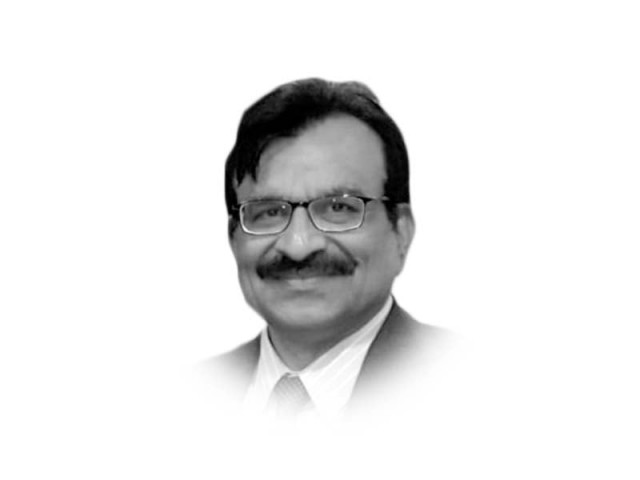Polio and Typhoid Marry

These days, a video clip is being widely circulated on social media about a senior medical doctor being arrested by the police for refusing to allow kids in the house to be vaccinated for polio. Many of my medical colleagues are angry to see a fellow doctor being manhandled by the police and raising this issue of patient privacy and choice. After reading the discussions on these clips among highly qualified medical professionals in this country, it has been very clear to me why polio is still lingering in Pakistan while it has been eradicated from all over the world except Afghanistan. I am sorry to say it, but it seems a large number of our medical professionals do not understand the public health importance of polio vaccination and the difference between the priorities of clinical medicine and public health.
Clinical practice is based on the principle of ‘do no harm’ and relies on patients willingness and permissions for any treatment. However, in public health, we are not focused on one patient but on the health of whole populations. Individual rights and choice are important here too, but they cannot undermine the collective health of populations. In cases of outbreaks, epidemics and pandemics, it is critical to stop the active transmission of the disease. Unless the transmission is controlled, everyone becomes susceptible. For vaccine preventable diseases, it becomes important to vaccinate the concerned population to save everyone. If someone refuses vaccination or other preventive measures, they are actually undermining the health of others. In these situations, public health laws become active, and punitive actions are taken by all governments around the world.
The famous case from the last century is of a lady later called Typhoid Marry. She was a cook in New York and was the first known asymptomatic carrier of typhoid. Asymptomatic carriers are those people who are not themselves sick with the disease but keep passing it on to others. This was the time before antibiotics, and typhoid was a very serious disease with high mortality. She was held responsible for infecting 50 to 150 people, resulting in two deaths. She was initially asked not to work as a cook, but she would change her name and start working as a cook (a better-paying job). Every time a new transmission chain was established. After multiple visits, she was forcefully quarantined in a hospital for some time. On her release, she started to cook again, and a new group of people started becoming infected. She was once again put in quarantine in a hospital until her death (still no antibiotics available). She collectively spent around 30 years in quarantine.
Even today, when collective health becomes important, the law overrules personal rights in most western countries which have strong legal processes and strong personal protections. A recent example is the Covid-19 pandemic, where without vaccinations and masks, most public places were made off-limits to the unvaccinated.
Polio is declared a global health emergency, and as Pakistan is one of the last two countries with continued transmission, travelers of Pakistan have to show evidence of polio vaccination every time they leave Pakistan. Continued transmission of a disease in Pakistan is not only endangering our kids but also putting all the global gains of polio eradication to waste. Parents who refuse vaccination are given multiple opportunities to meet with religious scholars and senior health staff. Only in very extreme cases the police involved, and a case is registered. The polio oral vaccine is safer than most vaccines, which parents allow their kids to be vaccinated for without any questions. Hostility toward polio vaccines stems from misinformation and fake news on social media and failure of our polio programme to educate about merits of this vaccination to most of our health professionals. It’s not just illiterate or religious extremists but highly educated too. The polio programme needs to develop out-of-the-box strategies for better risk communication with all strata of our population. A good artisan needs different types of tools to complete a job. In polio, we are trying to use one strategy everywhere with failures.














COMMENTS
Comments are moderated and generally will be posted if they are on-topic and not abusive.
For more information, please see our Comments FAQ